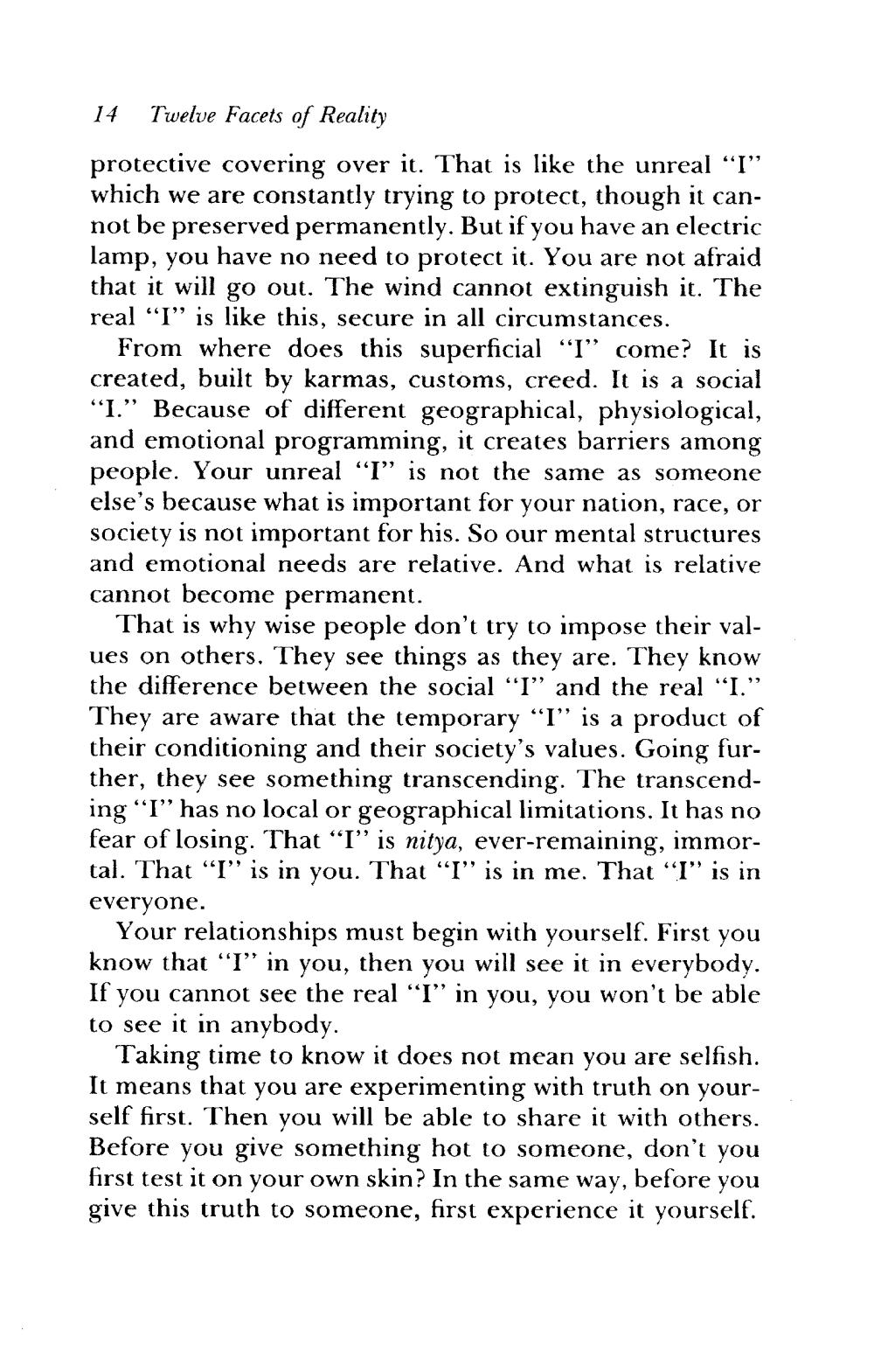________________
14 Twelve Facets of Reality protective covering over it. That is like the unreal “I” which we are constantly trying to protect, though it cannot be preserved permanently. But if you have an electric lamp, you have no need to protect it. You are not afraid that it will go out. The wind cannot extinguish it. The real “I” is like this, secure in all circumstances.
From where does this superficial “I” come? It is created, built by karmas, customs, creed. It is a social “1." Because of different geographical, physiological, and emotional programming, it creates barriers among people. Your unreal “I” is not the same as someone else's because what is important for your nation, race, or society is not important for his. So our mental structures and emotional needs are relative. And what is relative cannot become permanent.
That is why wise people don't try to impose their values on others. They see things as they are. They know the difference between the social “I” and the real "I.” They are aware that the temporary “I” is a product of their conditioning and their society's values. Going further, they see something transcending. The transcending “I” has no local or geographical limitations. It has no fear of losing. That “I” is nitya, ever-remaining, immortal. That “I” is in you. That “I” is in me. That “I” is in everyone.
Your relationships must begin with yourself. First you know that “I” in you, then you will see it in everybody. If you cannot see the real “I” in you, you won't be able to see it in anybody.
Taking time to know it does not mean you are selfish. It means that you are experimenting with truth on yourself first. Then you will be able to share it with others. Before you give something hot to someone, don't you first test it on your own skin? In the same way, before you give this truth to someone, first experience it yourself.




